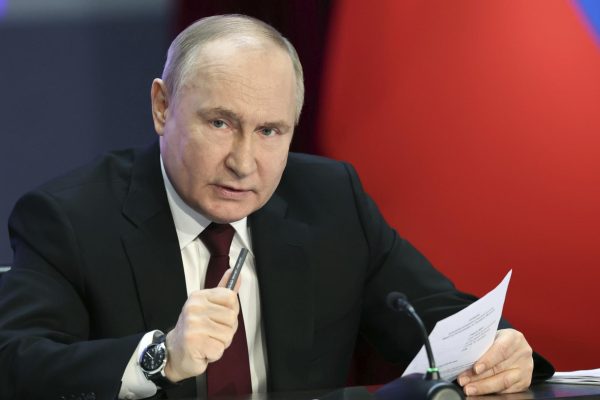Being Right: Spreading Democracy

In the past few weeks protests against totalitarian regimes have exploded in Northern African nations like Egypt, Libya and Tunisia. Dictators such as Hosni Mubarak and Muammar al-Gaddafi have used considerable amounts of force to defend their oppressive regimes and stifle democratic reforms. Student protestors have called for cross-class revolt against this totalitarianism and seek to institute new forms of government. While the violence in these nations is often appalling, it is refreshing to see African nations making a push toward democratic government. However, it is not the role of the United States to sit idly by waiting for these citizens to overthrow power-hungry leaders. The U.S. has a responsibility to institute and preserve stable democratic governments around the world.
In the past few decades, the United States has made some poor decisions to back questionable leaders in areas like Africa, the Middle East and South America. We have, at various times, supported individuals like Augusto Pinochet, Saddam Hussein and Reza Shah Pahlavi. These decisions were billed as “pragmatic” and made in the name of stability and containment. Yet each of these regimes proved brutal and yielded negative long-term consequences for the United States. The time to compromise and support the lesser of two evils in third-world nations is over. Leaders like Mubarak and Gaddafi are not worth the time for negotiation and compromise. Instead, the United States needs to find ways, either through direct military intervention or covert operations, to remove these oppressive regimes and institute democratic governments. Regardless of the stated motives, the best explanation for the U.S.’s involvement in nations like Iraq or Afghanistan is to establish democratic governments and institutions in the Middle East. As the world’s most powerful nation, it is the United States’ responsibility to ensure that all peoples have the same freedom as Americans.
By creating free governments throughout the world, Americans will become safer from the threat of totalitarian attacks on the United States. Democracy also leads to greater prosperity, and these prosperous nations will be more likely to cooperate with the U.S. and other Western nations. Ultimately, democracy is a silver bullet to prosperity in the modern world, and the U.S. should do everything it can to promote it.
The most difficult problem the U.S. faces when dealing with conflicts like the ones in Egypt and Libya is a radicalized citizenry. In Egypt, the students organizing against the far-right Mubarak regime are aligned with far-left socialist policies. Of course, neither far-right nor far-left agendas are desirable when trying to develop a new democratic government.
Therefore, in addition to providing military and economic service to institute democracy, the U.S. needs to give political aid as well. We should act as a moderate voice of reason between the radical groups that rise during regime changes. The only way to bring about democracy effectively is to see the political process along every step of the way, rather than executing a military coup and leaving the nation to fend for itself. If the U.S. commits politically to new governments in places like Libya and Egypt, the efforts will yield peace and democracy in Northern Africa and will pay dividends in the long run.
As part of the most prosperous nation in world history, Americans often take our nation’s peace for granted and forget about the violent struggle for freedom in other countries. We need to understand the political situations in these tumultuous nations and then act accordingly to institute democracy. Everyone deserves access to the basic rights and freedoms that are present in this country, and the U.S. has the power and responsibility to provide them.









